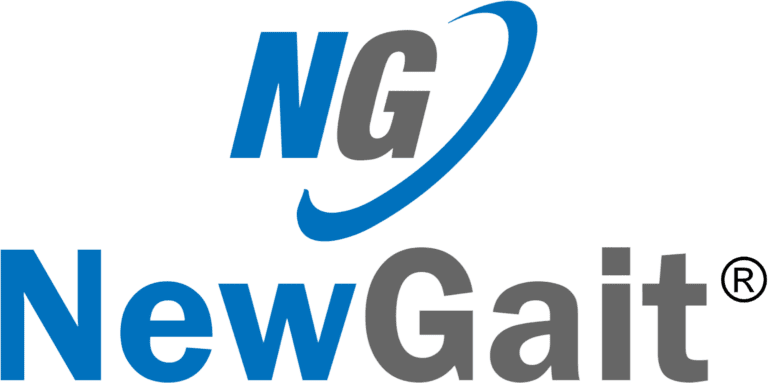A strong blow to the head may alter your speech or memory of words in several ways. This type of brain injury is dangerous. Some people may have difficulty forming the mouth’s muscles properly at other times. While at times, remembering the exact word can be difficult. But do not worry. This article will tackle how to regain speaking ability after brain injury.
There’s a silver lining. Many people get back their voices after such injuries. With the help and guidance of an expert called a speech-language pathologist. Plus, they follow some exercises tailor-made for this. So, relearning to speak is possible even after a brain injury.
How to Regain Speaking Ability After Brain Injury
Brain injury can cause a variety of problems, one of which is language and speech difficulties. If you have had a brain injury and find it hard to talk or form words, most likely, the parts of your brain dealing with language were hurt from the injury.
These tend to be located within the brain area we use the most. In most individuals, that is usually located on the left side of the brain. So if you have damage to those key language engendering spots after a brain injury and you can’t seem to talk or create sentences right anymore, then it might explain why.
Types of Speech and Language Disorders
If you have suffered from a brain injury, you may find some difficulties in your speech and word understanding. There are three main types of these changes, and they all are disorders in speech and language. One is called Dysarthria. The second type one may experience is ‘apraxia of speech.’
Aphasia
Imagine you find it hard to speak or understand the words others are using. This condition is called Aphasia. At this point, you would probably consider this to be similar to Apraxia. Apraxia is concerned with the difficulty of speech movements.
Aphasia deals with comprehension and word retrieval. Another problem, apart from speaking and comprehension, is that reading and writing could also be a bit of a problem for those suffering from Aphasia.
Dysarthria
This is a speech disorder whereby the muscles used for talking are weakened. Think of this: if you have ever tried talking with your mouth full of food, you know how difficult it is. With Dysarthria, that is what speaking feels like all of the time. Sometimes, the words may come out slurred or mumbled.
Apraxia
Apraxia of speech is a problem whereby a person finds it difficult to initiate and complete the movements in saying the words correctly. The problem lies with poor coordination that intrinsically originates from the brain.

Can One Rediscover Speech Post Brain Injury?
Speech recovery after brain injury is definitely not impossible due to the brain’s unbelievably self-healing capabilities. This miraculously outstanding process is called neuroplasticity—the brain’s ability to change its connections. This is incredibly encouraging, for it means that skills affected by the damage, like speech, might have the possibility of being redeveloped and restored again.
Many individuals with brain injury have been able to regain their ability to speak through neuroplasticity. The true secret to activating neuroplasticity is consistently practicing the targeted skills you wish to improve. Maintaining consistent repetition can stimulate the brain and emphasize the demand for a specific function.
Therefore, active attempts to move oral muscles are essential for regaining control over them. Similarly, practice in uttering words and constructing sentences is necessary for speaking. We shall discuss in greater detail the improvement of speech following a brain injury further up ahead.
Tips on How to Regain Speaking Ability After Brain Injury
Brain injuries and recoveries vary from individual to individual. Thus, recovery in speech and language skills is very personalized.
It’s more like a jigsaw puzzle. Chatting is not that easy; it requires several parts fitted together in the brain. You won’t require only the use of muscles in your mouth to shape words but tons of other abilities as well, including the following:
- Memory and remembering things
- Listening carefully
- Swallowing properly
- Correct breathing
- Understanding what’s said
- Finding solutions to problems
All these abilities need to be improved for good communication. Depending on the type of speech disability one is suffering from, different solutions may be suggested. This again proves that a personalized approach towards regaining lost speech and language abilities is necessary.
Bring in a Speech-Language Pathologist
First and foremost, if you are seeking to regain speech after sustaining a brain injury, you should see an SLP. This professional will examine how well you can talk, determine your problem precisely, and then develop an individualized action plan to help you realize that. The action plan will include many exercises that will help improve your speech.
Let’s break this down with a few examples. Suppose you’re having trouble because of weak or uncoordinated speech muscles; your SLP may ask you to blow a whistle, yawn, or make funny popping sounds with your lips.
On the other hand, if you frequently forget words, the SLP might ask you to name pictures or tell words that belong to a certain category.
Make sure you practice your therapy exercises many times throughout the day. By doing so, you will not only stimulate the brain but also complement the process known as neuroplasticity. That basically means when your brain reshapes itself further to be better.
Try Singing Therapy
Studies have proven that “when spoken words are sung or chanted, people with non-fluent aphasia are able to communicate better.”
This occurs because singing involves the right side of our brain, which is associated with creativity, unlike talking, which is controlled by the left. The left side deals with talking and may be impaired in people with speech disorders. Thus, even though talking or murmurs can be hard to do, singing can be easily done because the brain’s “singing side” remains intact.
By attempting singing therapy, people with brain injuries have significantly improved their speech, mouth movements, and even sentence construction. Moreover, it helps in the rapid retrieval of words. Therefore, singing therapy should be a necessity for those who are suffering from Aphasia and Apraxia.
Encourage Social Interaction
Communication does not only mean talking but also listening and understanding others. And what can increase this ability? Social life. Conversations with family, friends, or simply unknown people allow a person to use these speech skills, giving examples in such cases.
Moreover, it increases confidence and decreases anxiety related to communication after sustaining a brain injury. It also provides opportunities to learn new vocabulary and understand different ways of expressing thoughts and ideas.

Incorporate Technology
Second, technological advances have enabled some different apps and tools to facilitate speech recovery after brain injury. Examples include speech therapy apps, voice recognition software, and picture or symbol communication devices.
While these tools should not be utilized instead of linguistic therapy, they do have potential uses as a supplement to traditional linguistic therapy methods and offer further opportunities for practice for everyone aiming to improve his/her speech abilities.
To Sum Up
Individualizing the right strategies on how to regain speaking ability after brain injury will help you. Remember that every brain injury is different, so the specifics of treatment for speech recovery need to be tailored according to your exact needs and goals. So practice with patience and determination—your speech will improve over time!

